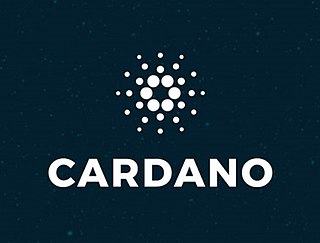
Bram Cohen is an American computer programmer, best known as the author of the peer-to-peer (P2P) BitTorrent protocol in 2001, as well as the first file sharing program to use the protocol, also known as BitTorrent. He is also the co-founder of CodeCon and organizer of the San Francisco Bay Area P2P-hackers meeting, was the co-author of Codeville and creator of the Chia cryptocurrency which implements the proof of space-time consensus algorithm.

Brock Jeffrey Pierce is an American entrepreneur known primarily for his work in the cryptocurrency industry. As a child actor, he starred in the Disney films The Mighty Ducks (1992), D2: The Mighty Ducks (1994), and First Kid (1996). He ran as an independent candidate in the 2020 United States presidential election.

A cryptocurrency, crypto-currency, or crypto is a digital currency designed to work as a medium of exchange through a computer network that is not reliant on any central authority, such as a government or bank, to uphold or maintain it. It has, in a financial point of view, grown to be its own asset class. However, on the contrary to other asset classes like equities or commodities, sectors have not been officially defined as of yet though abstract version of them exist.
Coinbase Global, Inc., branded Coinbase, is an American publicly traded company that operates a cryptocurrency exchange platform. Coinbase is a distributed company; all employees operate via remote work. It is the largest cryptocurrency exchange in the United States in terms of trading volume. The company was founded in 2012 by Brian Armstrong and Fred Ehrsam. In May 2020, Coinbase announced it would shut its San Francisco, California, headquarters and change operations to remote-first, part of a wave of several major tech companies closing headquarters in San Francisco in the wake of the COVID-19 pandemic.
Blockchain.com is a cryptocurrency financial services company. The company began as the first Bitcoin blockchain explorer in 2011 and later created a cryptocurrency wallet that accounted for 28% of bitcoin transactions between 2012 and 2020. It also operates a cryptocurrency exchange and provides institutional markets lending business and data, charts, and analytics.

Ethereum is a decentralized blockchain with smart contract functionality. Ether is the native cryptocurrency of the platform. Among cryptocurrencies, ether is second only to bitcoin in market capitalization. It is open-source software.
Circle is a peer-to-peer payments technology company that now manages stablecoin USDC, a cryptocurrency the value of which is pegged to the U.S. dollar. It was founded by Jeremy Allaire and Sean Neville in October 2013. Circle is headquartered in Boston, Massachusetts. USDC, the second largest stablecoin worldwide, is designed to hold at or near a stable price of $1. The majority of its stablecoin collateral is held in short-term U.S. government securities.
A blockchain is a distributed ledger with growing lists of records (blocks) that are securely linked together via cryptographic hashes. Each block contains a cryptographic hash of the previous block, a timestamp, and transaction data. Since each block contains information about the previous block, they effectively form a chain, with each additional block linking to the ones before it. Consequently, blockchain transactions are irreversible in that, once they are recorded, the data in any given block cannot be altered retroactively without altering all subsequent blocks.
Consensys is a private blockchain software technology company founded by Joseph Lubin and based in Fort Worth.
Proof of space (PoS) is a type of consensus algorithm achieved by demonstrating one's legitimate interest in a service by allocating a non-trivial amount of memory or disk space to solve a challenge presented by the service provider. The concept was formulated in 2013 by Dziembowski et al. and by Ateniese et al.. Proofs of space are very similar to proofs of work (PoW), except that instead of computation, storage is used to earn cryptocurrency. Proof-of-space is different from memory-hard functions in that the bottleneck is not in the number of memory access events, but in the amount of memory required.

Cardano is a public blockchain platform. It is open-source and decentralized, with consensus achieved using proof of stake. It can facilitate peer-to-peer transactions with its internal cryptocurrency, ADA.
A cryptocurrency wallet is a device, physical medium, program or an online service which stores the public and/or private keys for cryptocurrency transactions. In addition to this basic function of storing the keys, a cryptocurrency wallet more often offers the functionality of encrypting and/or signing information. Signing can for example result in executing a smart contract, a cryptocurrency transaction, identification, or legally signing a 'document'.
Bitmain Technologies Ltd., is a privately owned company headquartered in Beijing, China, that designs application-specific integrated circuit (ASIC) chips for bitcoin mining.
Cryptocurrency and crime describe notable examples of cybercrime related to theft of cryptocurrencies and some methods or security vulnerabilities commonly exploited. Cryptojacking is a form of cybercrime specific to cryptocurrencies that have been used on websites to hijack a victim's resources and use them for hashing and mining cryptocurrency.

TRON is a decentralized, blockchain-based operating system with smart contract functionality, proof-of-stake principles as its consensus algorithm and a cryptocurrency native to the system, known as Tronix (TRX). It was established in March 2014 by Justin Sun and since 2017 has been overseen and supervised by the TRON Foundation, a non-profit organization in Singapore, established in the same year. It is open-source software.
Paxos Trust Company is a New York–based financial institution and technology company specializing in blockchain. The company's product offerings include a cryptocurrency brokerage service, asset tokenization services, and settlement services. ItBit, a bitcoin exchange run by Paxos, was the first bitcoin exchange to be licensed by the New York State Department of Financial Services, granting the company the ability to be the custodian and exchange for customers in the United States.

Celsius Network LLC was a cryptocurrency company. Headquartered in Hoboken, New Jersey, Celsius maintained offices in four countries and operated globally. Users could deposit a range of cryptocurrency digital assets, including Bitcoin and Ethereum, into a Celsius wallet to earn a percentage yield, and could take out loans by pledging their cryptocurrencies as security. As of May 2022, the company had lent out $8 billion to clients and had almost $12 billion in assets under management.
Chainalysis is an American blockchain analysis firm headquartered in New York City. The company was co-founded by Michael Gronager, Jan Møller and Jonathan Levin in 2014, and is the first start-up company dedicated to the business of Bitcoin tracing. It offers compliance and investigation software to analyze the blockchain public ledger, which is primarily used to track virtual currencies. Along with banks and brokers its customers have included the United States Federal Bureau of Investigation, Drug Enforcement Administration, and the Internal Revenue Service Criminal Investigation, as well as the United Kingdom's National Crime Agency.
Chia Network Inc. is a US-based blockchain technology company. The company built the Chia blockchain that uses proof of space and proof of time consensus protocols and issues the digital currency Chia (XCH). Chia Network was founded in 2017 by Bram Cohen, the creator of BitTorrent, and Ryan Singer. Its headquarters are in South San Francisco, California.







